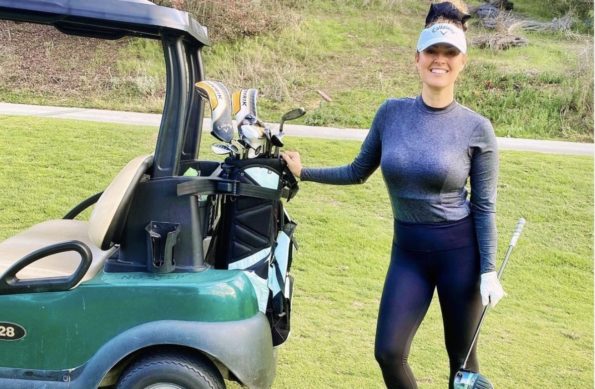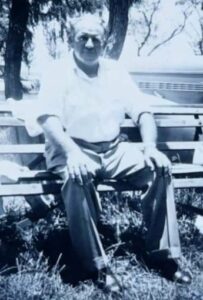Okay, I have to apologize for this one — I mean, Leo Sayer? Ugh.
In my defense, Yer Onnah, let me explain by offering up this story.
After I finished my Army service, I had no job, no prospects, no money and in one of my more stupid moments had rented an apartment without having more than the first month’s rent money in my bank account. So there I was: in an expensive (for the time) apartment right in the middle of downtown Johannesburg, a few cans of food and even fewer sticks of furniture, going to job interviews on pretty much a full-time basis — as I recall, about three a day — and all for entry-level positions that had no guarantee of a salary that could pay the next month’s rent, let alone anything else.
And I made it even worse for myself by consistently turning down job offers because they were shit clerical jobs with institutions like insurance companies. Oh, and the band wasn’t active at that moment either — no idea why, it was just in a fallow patch for the next few weeks.
Then I got a call from a guy I knew from the Army Entertainment Group, an Afrikaans guy named Gerrit who was keyboards player in one of the Army bands.
“You playing anywhere for the next two weekends?”
“Nope.”
“I have a problem. I’ve got a private gig at a dinner dance club in Pretoria, but our bassist just learned he has a kidney problem, so he’s unavailable for the next three weeks — hospital, operations, recovery and so on. Can you fill in?”
So for the next two weekends I played in this club with a trio, backing a female singer named Amanda, a tall brunette who was terribly sexy, but (I soon discovered) a lesbian.
Not that there’s anything wrong with that.
And she had a terrific voice. Nothing wrong with that, either.
Fortunately, the music wasn’t that difficult — nightclub-type jazz standards and popular ballads: the stuff I’d cut my professional-musician teeth on. I knew most of the songs, and the ones I didn’t I could busk along with. (I was actually pretty good at that, and it got me quite a few part-time gigs like this one over the years.)
One of the things I was really good at was vocal harmonizing. I had a good range, perfect pitch and could hit some scary-high notes in falsetto (think: Barry Gibb of the BeeGees, whose parts I could nail like a two-by-four). I’m not boasting, and it has relevance to what follows.
One of the songs that Amanda could really kill was Can’t Stop Loving You by the above Leo Sayer. So the first time we played it, I got to the refrain and sidled up to the mike, waiting for someone to sing a harmony so that I could add another one, but… nothing. She had to sing it without any vocal harmonies to back her up — apparently, the other two guys couldn’t sing worth a damn. So the second time the refrain came up, I added a harmony — the top one above the melody she was singing.
I’ll never forget the look on Amanda’s face. She gave me this huge smile as she sang, and walked over to me so we could share her mike, turning it into a duet and staring into each others’ eyes as we sang. It was incredibly sexy: we must have looked like lovers to the crowd, and when we finished, there was a storm of applause. During the break, she said:
“Can you do more harmonies?”
“Anything you want.”
“Linda Ronstadt?”
“You sing it, honey, and I’ll back you.”
So she did, and so did I. It turned a simple fill-in gig to a wonderful time.
Here’s the end of the story. The last weekend arrived, and I worked out that by doing this gig I would have earned enough money to pay the next month’s rent, but no more.
And that Friday I went for a job interview for an assistant statistician position at The Great Big Research Company, nailed the aptitude test and was offered the job on the spot, starting the very next Monday. Financial future: assured. (For well over the next decade or so, as it turned out.)
I’d invited this girl to come and watch me play the gig on the last night (Saturday). I’d taken her out once before, with (shall we say) no romantic conclusion. So my expectations were low that Saturday night, but I felt like celebrating my new job, and needed company.
To my surprise, we ended up in bed afterwards and she stayed over at my new apartment the whole of the next day and night. When I asked her what had made her say yes to my spiel, she said she’d been incredibly turned on by watching my duet with Amanda — in fact, it had made her quite jealous — and well, the rest just followed along.
Let’s just say I arrived for the first day at my new job in a state of pleasant satiation.
So that’s why I love that silly Leo Sayer song.
And thank you for listening.





















 ...wait, WHAT? I’m not sure even Texas could contain those puppies.
...wait, WHAT? I’m not sure even Texas could contain those puppies.

 ...maybe it’s her swing.
...maybe it’s her swing. 























